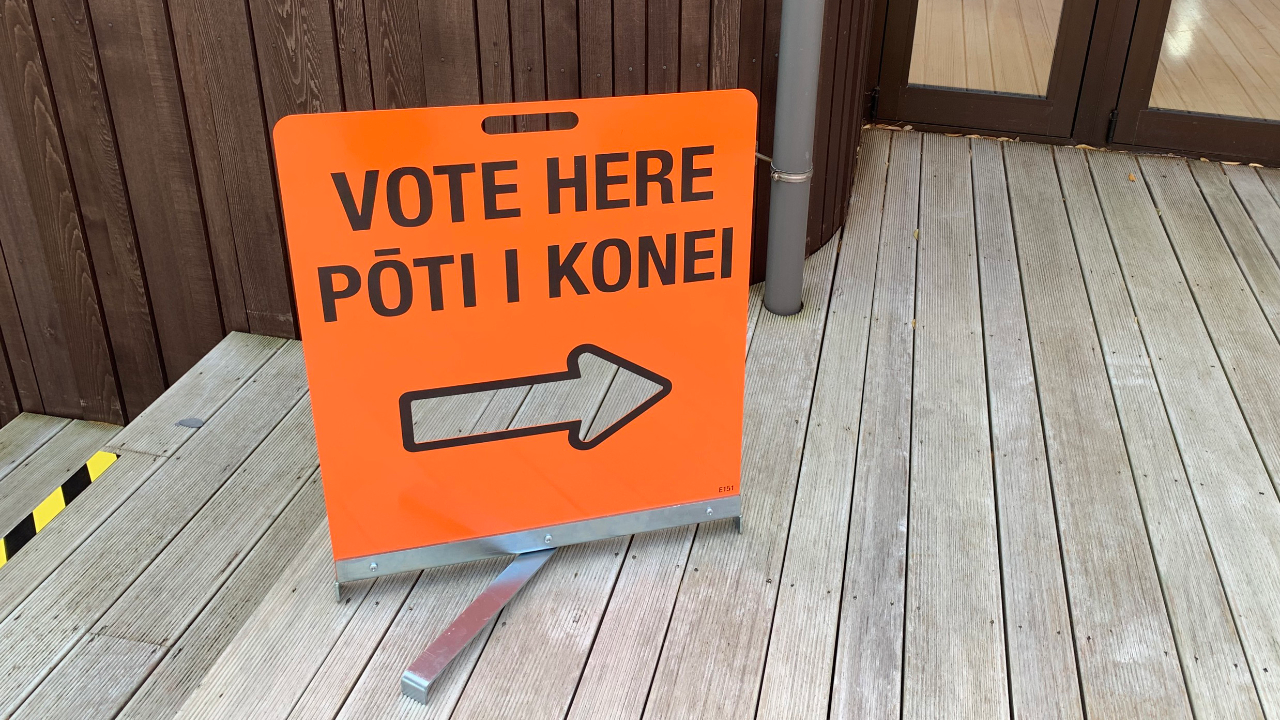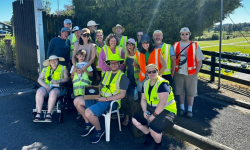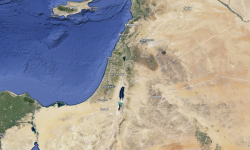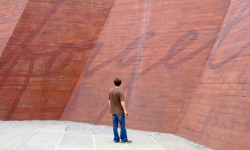
This is the fourth in a series of opinion pieces coming from a variety of people from our Baptist ‘tribe’ of Christians as they share some of their reflections on the up-coming General Election on 14 October 2023. We hope this content helps people to engage well with the voting process. Opinion pieces are the views of individuals and need to be considered within the context of the diversity of our union of Baptist churches in New Zealand. When commenting or contributing please follow our Guidelines for articles, opinion pieces and online comments.
This piece below comes from Ken Keyte who has been a Baptist pastor for 20 years. Last year he accepted a call to Cambridge Baptist Church where he and Raewyn are enjoying running and cycling in the beautiful Waikato countryside and getting to know their church and local community.
Gospel view of the world
Election campaigning is in full swing and over the remaining weeks until election day the various political parties and their candidates will attempt to persuade us to vote for them. As Christians, how do we decide who to vote for? In Tony Campolo’s book, Red Letter Christians[i], he recommends that on any specific social or political issue, we must be ready and willing to work out which party and/or candidate best represents your convictions. However, he admits that this will not be easy! As I wonder how to start on such an important exercise, I have come to the conclusion that the best place to start is to form a gospel view of the concerning issue.
Paul Windsor, in his Art of Unpacking website[ii], outlines a method for examining a particular topic from each of the four gospel reference points of: Creation (Good); Fall (Bad); Redemption (New); Restoration (Perfect). I hope this exercise will enable me to then examine any political party’s policy against the gospel view of the concerning issue.
Poverty
I want to develop a gospel view of the concerning issue of Poverty. According to the IPSOS New Zealand Issues Monitor (May 2023)[iii], Poverty is the seventh ranked concerning issue for New Zealanders. Interestingly, all except the last on the top 20 list are either causes or results of poverty in New Zealand. For example, the top six issues ranked above poverty are: Inflation, Crime, Housing, Health Care, Climate Change, Economy, that all either influence or are the product of poverty.
Creation’s view of poverty
Forming a gospel view of poverty begins with Creation. From Genesis 1 we learn that God provided humans with an abundant food supply of plants and animals to eat (Gen 1:29,30). God had already instructed humans to be fruitful and multiply and to fill the earth and look after it (v28). There is no mention of this food supply running out and no mention of poverty. Otherwise, God would not have declared his creation to be very good. Genesis 1 therefore presents God’s good creation as being sufficient to sustain humankind as they fill the earth and look after it.
Fallen view of poverty
The gospel view of poverty, however, takes a turn for the worse when we look at it from the biblical reference point of the Fall. In Genesis 3 we learn that among the consequences of Adam and Eve’s rebellion against God was that the ground would be cursed and require painful toil to get enough food to eat. They were banished from the Garden of Eden and denied access to the Tree of Life that would otherwise have sustained them forever. Without access to the Tree of Life – their life span would now become finite. From Genesis 3 onwards, the state of humanity quickly goes from bad to worse! Exodus begins with the nownumerous descendants of Abraham living in poverty as slaves in Egypt far away from the land God had promised them because of a famine!
Redemption’s view of poverty
From the perspective of the Fall, we see a good creation turned bad and stricken with poverty because of humankind’s rebellion against God. Thank goodness, God was not prepared to leave humankind to suffer the consequences of our pitiless tendances! Glen Scrivener takes a redemptive view of poverty in The Air we breathe[iv] in his chapter on Compassion:
In the 1st Century some remarkable values were injected into a brutal world – values that continue to shape us today! These values had been prefigured in the Hebrew Bible, but something happened to make compassion burst the banks of Israel and begin to flood the world! Kindness himself appeared – kindness in person, entered the pitiless realm of nature and suffered its brutalities. Yet in love, he chose the cross. And it was in on the cross that Christ, the Fittest, was sacrificed for us, the weakest, so that we, the weakest, might be raised up, forgiven and filled with the life of his Spirit! But this wasn’t just an Easter reality. Jesus pointed his followers to the starving, the immigrant, the sick and the imprisoned, saying “Whatever you do for the least of these, you do for me.” (Matthew 25 verse 40).
Followers of Jesus have been attempting to emulate Jesus’ example ever since! Charity was considered integral to the faith and to the duties of each Christan. Churches established “mini welfare states”, with their size and infrastructure further growing after the conversion of the Roman emperor Constantine in 312 AD. We take it for granted that our New Zealand government will provide health care, education, social welfare, superannuation and other social services – all of which have their origins in the early church and are the result of centuries of Christan influence in society. According to Scrivener this is the ‘air we breathe’.
Restoration’s view of poverty
To complete the gospel view of poverty we turn to the Bible’s closing perspective of how things will be at the renewal of all things. In Revelation 22 John sees the river of life flowing from the throne of God and of the Lamb. On each side of the river stands the tree of life, bearing year-round food supply with leaves that are for the healing of the nations. The curse of the fall has been lifted. The throne of God is in the great city and all who serve him will reign for ever and ever. Poverty will be extinct! This vision of how it will be when perfection comes, is also a vision of what we are working towards – God’s will be done on earth as it is in heaven.
Voting with a gospel view
How then, does this gospel view of poverty help me decide who I will vote for? When I examine each of the political party’s policies, I will be asking: who does this policy benefit – those with the most or those with the least? I realise this will not be an easy exercise as poverty is a complex problem. Yet I hope that having formed a gospel view of poverty, I will be better prepared to decide which political party and candidate best aligns with a gospel view of the world.
Pre-election reflection series
Other pieces in this series:
Vote for your neighbour by Andrew Clark-Howard
Seeking the welfare of the city when the empire’s listening: Exploring politics with Joseph and Daniel podcast episode with Michael Rhodes
Encouraging people to vote by Jessica McKnight
Endnotes
[i] Campolo, Tony, Red Letter Christians, Regal Books, 2008
[ii] Windsor, Paul, https://paulwindsor.blogspot.com/2022/07/topical-preaching.html#more
[iii] https://www.ipsos.com/en-nz/20th-ipsos-new-zealand-issues-monitor
[iv] Scrivener, Glen, The Air we Breathe, The Good Book Company, 2022
Photo credit: Electoral Commission Media Kit General Election 2023, Creative Commons.


